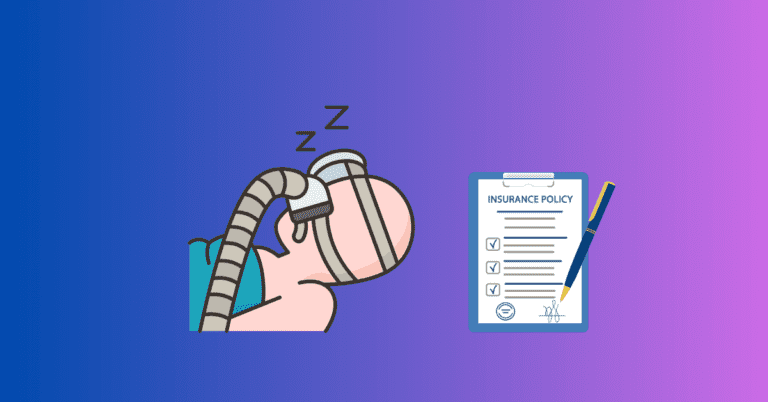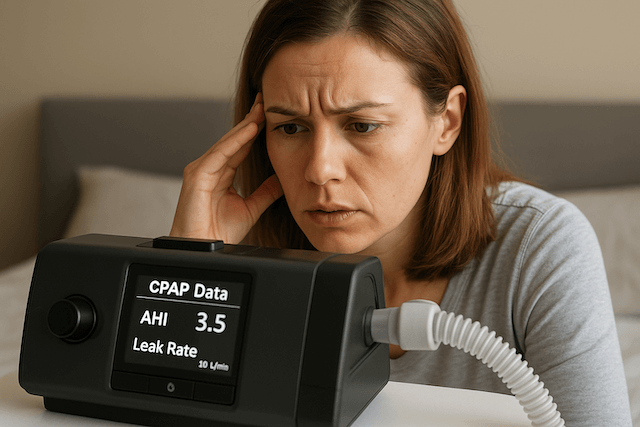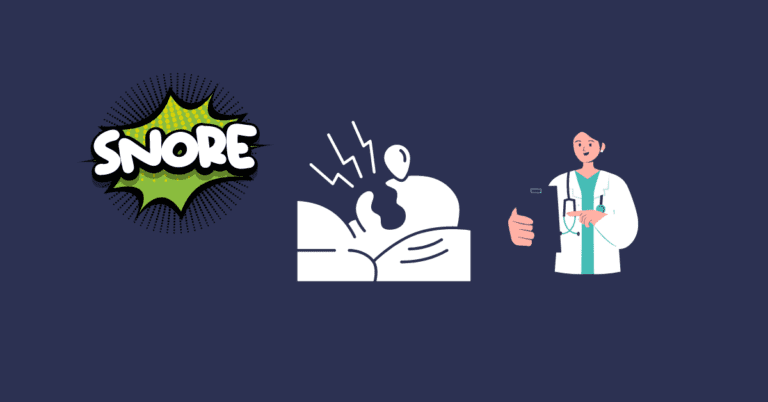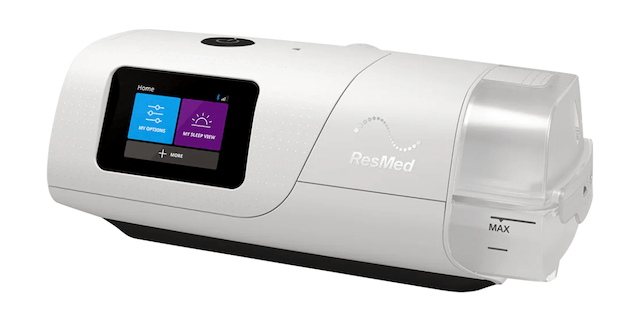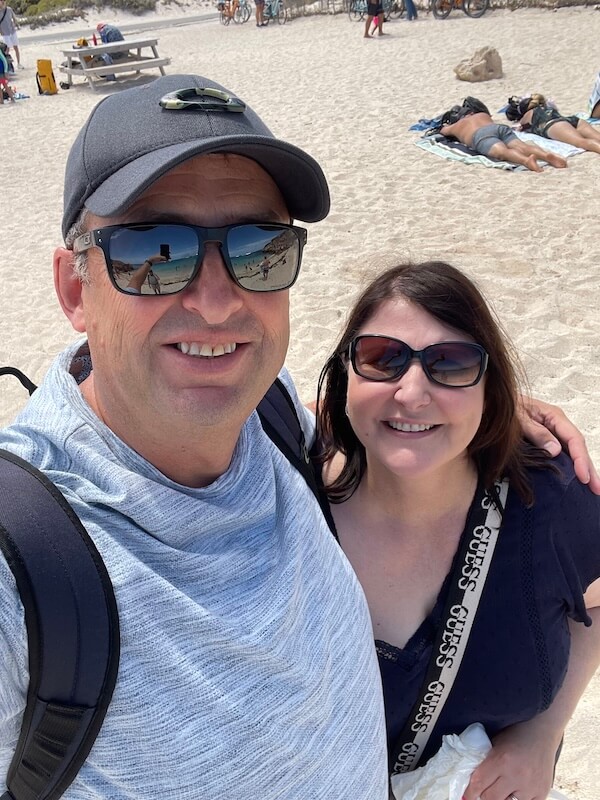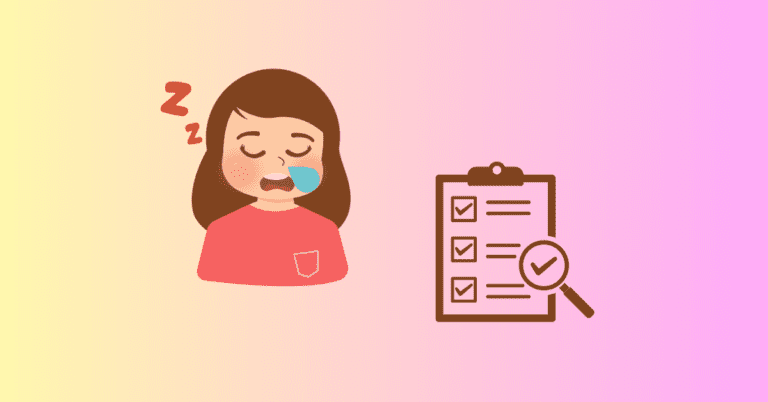Complex Mixed Sleep Apnea – Understanding and Managing
Jeremy Smith is a long-term CPAP user and sleep apnea advocate. After being diagnosed with severe obstructive sleep apnea, he created ByJeremySmith.com to help others navigate CPAP therapy through personal stories, gear reviews, and practical advice.
Complex Mixed Sleep apnea is a serious condition, but it’s important to know the different apnea types so you can get a correct diagnosis. Unfortunately, people don’t always fit neatly into just one category.
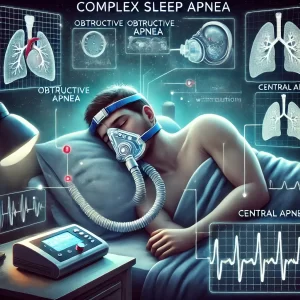
Complex mixed sleep apnea (also known as treatment-emergent sleep apnea) occurs when a person experiences both obstructive sleep apnea (OSA) and central sleep apnea (CSA).
Managing this form of sleep apnea can be challenging, but with the right information and treatment, it’s possible to improve your sleep quality and overall health.
Let’s dig into this.
What Is Complex Mixed Sleep Apnea?
Complex mixed sleep apnea is diagnosed when a person has characteristics of both obstructive and central sleep apnea. In OSA, the airway is physically blocked, leading to pauses in breathing. In CSA, the brain fails to send proper signals to the muscles that control breathing. With complex mixed sleep apnea, both mechanisms are at play, which makes treatment more complicated.
Personal insight: When I first went to my doctor to see if I had sleep apnea, I didn’t realize how many types of sleep apnea there are.
Symptoms of Complex Mixed Sleep Apnea
The symptoms of complex mixed sleep apnea can overlap with both obstructive and central sleep apnea, which can make it harder to pinpoint. Here are some common symptoms:
- Loud snoring: A hallmark of obstructive sleep apnea, though less pronounced in CSA.
- Gasping or choking during sleep: Caused by the airway becoming blocked.
- Frequent waking at night: You might not always realize you’re waking up, but these disruptions prevent deep, restorative sleep.
- Chronic daytime fatigue: Despite getting what seems like enough sleep, you feel constantly tired.
- Morning headaches: Low oxygen levels during the night can lead to headaches upon waking.
- Difficulty concentrating: Poor sleep quality often results in issues with focus and memory.
Personal insight: For years, I would wake up feeling exhausted no matter how long I slept. I didn’t just feel tired; I felt like my brain was in a fog. It wasn’t until my doctor did a sleep study that we realized I had severe sleep apnea.
Causes
The exact cause of complex mixed sleep apnea isn’t always clear. Sometimes, people develop central sleep apnea as a response to the treatment they receive for obstructive sleep apnea. Here are some potential causes:
- Underlying medical conditions: Heart disease, stroke, or neurological disorders can contribute to both OSA and CSA.
- Use of CPAP therapy: Some people who begin CPAP therapy for OSA find that their central sleep apnea symptoms appear or worsen. This is called treatment-emergent central sleep apnea.
- Genetic factors: Family history of sleep apnea could also play a role.
Personal insight: After I had my sleep study, It was evident by the results that there were no symptoms of complex sleep apnea CSA for me, so it was clear I had OSA. Although OSA is the most common form of sleep apnea, your results might be different.
Risk Factors
Certain factors can increase your likelihood of developing complex mixed sleep apnea, such as:
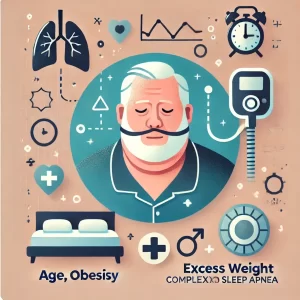
- Age: Sleep apnea becomes more common as we get older.
- Gender: Men are more likely to develop both types of sleep apnea.
- Obesity: Excess weight, especially around the neck, can contribute to obstructive sleep apnea.
- Heart or neurological conditions: Conditions like heart failure, stroke, or other brain-related disorders increase the risk of CSA, contributing to complex mixed sleep apnea.
- CPAP therapy: As mentioned, starting CPAP therapy for OSA can lead to treatment-emergent CSA.
Personal insight: Being overweight played a role in my sleep apnea but unfortunately for me, after I lost weight, my sleep apnea persisted. Remember, as you get older, your skin gets more flabby and loose, so there is more chance of it blocking your airways as you sleep.
Diagnosis
Diagnosis often begins with a sleep study (polysomnography), where your breathing, heart rate, and other body functions are monitored while you sleep. This study can reveal whether your apneas are obstructive, central, or a mix of both.
- Home sleep apnea tests: In some cases, your doctor might give you a home sleep test. However, this test may not be as accurate for diagnosing central sleep apnea as it is for obstructive sleep apnea.
- Follow-up studies: If you’ve already been diagnosed with OSA and start CPAP therapy, your doctor might order a follow-up sleep study to see if central sleep apnea has developed.
Treatments
Treatment can be more challenging than treating just one type of sleep apnea. Here are some common treatments:
- BiPAP therapy: Unlike CPAP, which provides continuous pressure, BiPAP provides two levels of pressure—one for inhalation and one for exhalation. This helps people with central apnea breathe more easily.
- Adaptive Servo-Ventilation (ASV machine): This advanced machine adjusts its pressure settings based on your breathing patterns. It’s particularly effective for people with central sleep apnea and complex mixed sleep apnea.
- Medication: In some cases, medications like acetazolamide may be used to stimulate breathing and reduce central sleep apnea events.
- Supplemental oxygen: For some, oxygen therapy can help maintain proper oxygen levels during sleep.
Managing Complex Mixed Sleep Apnea with Lifestyle Adjustments
In addition to medical treatments, the following lifestyle changes can help:
- Lose weight: If you’re overweight, losing even a small amount of weight can reduce the severity of obstructive sleep apnea.
- Limit alcohol and sedatives: These can relax the muscles of the airway, making both OSA and CSA worse.
- Sleep on your side: Sleeping on your back can worsen sleep apnea, so switching to your side can help.
Personal insight: It’s important to cut out alcohol and lose weight if you have any sort of sleep apnea, or even to just live a longer and happy life.
If you have any questions about Complex Mixed Sleep Apnea or would like to share some stories, please do so in the comments below.
Disclaimer: The content on this blog is for informational and educational purposes only and is not a substitute for professional medical advice. Always speak with your doctor or sleep specialist before starting, stopping, or changing any treatment or therapy related to sleep apnea or CPAP use.
